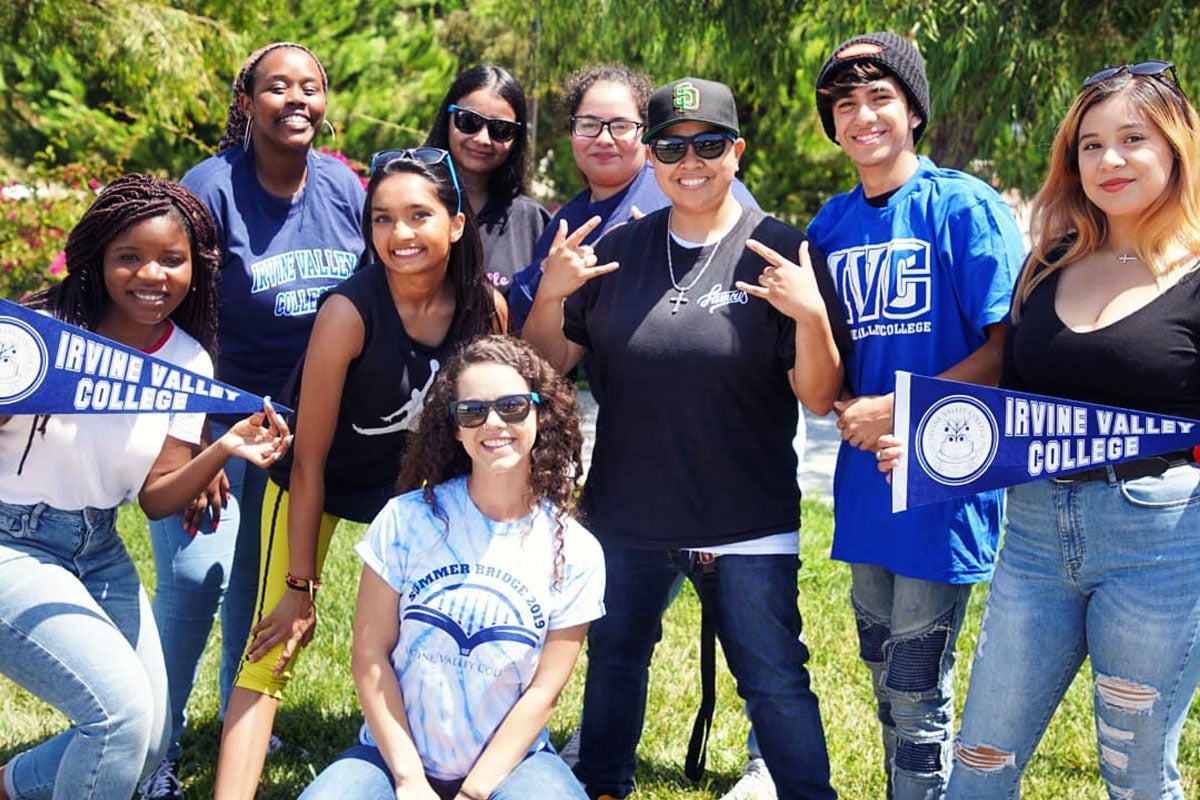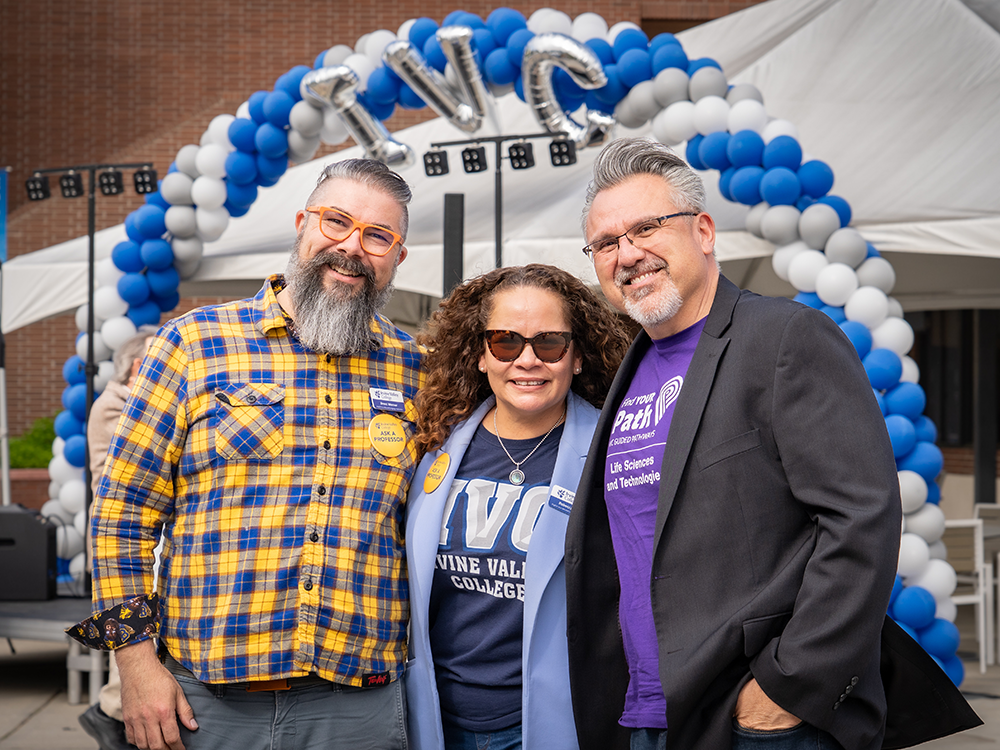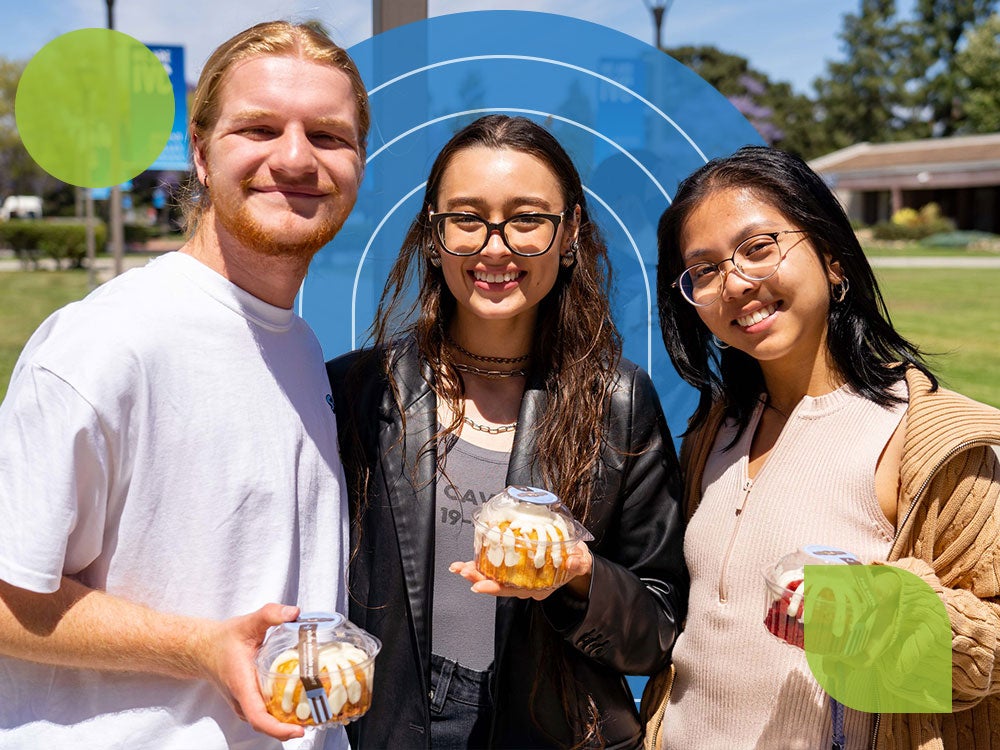In the realm of higher education – where lectures and textbooks often dominate – Irvine Valley College Business Sciences Professor John Russo is on a mission to break the mold. His manifesto? To propel students out of the confines of traditional learning and into a realm of hands-on experience, networking, and industry immersion.
Russo has been instrumental in spearheading initiatives that bring students closer to industry partners, creating a symbiotic relationship that benefits all parties involved. These meaningful connections between academia and industry provide a platform where students can bridge the gap between classroom learning and real-world experience.
"As a faculty member, I feel it's really important to get students outside the classroom and into experience-based learning by interacting and networking with those in industry and the workforce," says Russo who is entering his 10th year with IVC. The key, Russo says, is to expose students to networking opportunities, internships, and workshops with external companies, enabling them to build relationships and find mentors early in their academic journey.
One such avenue is the collaboration with Tech Coast Venture Network (TCVN), an entrepreneurial organization that coordinates mentorships and internships for early-stage entrepreneurs. Russo actively involves students by inviting them to TCVN events twice a month. The impact has been profound, with students meeting CEOs, startup founders, and establishing connections that transcend the confines of a traditional classroom. Russo attests to the success stories, saying, "I've had four students I've referred to member businesses of TCVN. One student met one of the board members of TCVN, who owns a marketing company. He hired him as an intern, and then full-time."
The outreach extends to the federal Small Business Administration’s Small Business Development Center (SBDC), which hosts workshops at IVC. These workshops, often free for students, provide valuable insights through mentors and counselors who are seasoned business owners. The SBDC's offerings include one-hour consultations on various business aspects, from market research to pricing. Russo notes the importance of making students aware of these opportunities, ensuring that they capitalize on the resources available.
IVC, with its diverse student population, caters to both recent high school graduates and older individuals seeking to retool or transition careers. Russo highlights the untapped potential in community college students, stating, "Those in industry don't always think about community college students as a resource for their businesses, but with that said, we have a spectrum from young students who have fresh, great ideas to even seasoned older students who have a wealth of experience in a number of industries that industry partners can see value."
The impact on students goes beyond professional development. Russo shares a powerful anecdote about a student struggling with mental health and family issues who, through entrepreneurship classes and networking events, developed his confidence and networking skills while meeting mentors to help guide him in his career journey. He is now at UC Irvine where he is involved with its entrepreneurship center. Russo notes that this underscores the broader impact of partnerships, not just on career paths but on personal growth and resilience.
IVC's collaboration extends not just to UCI but other four-year institutions such as Cal State Fullerton, Concordia and Chapman University, enriching the entrepreneurial ecosystem with additional workshops, speakers, and resources. Russo emphasizes the cross-disciplinary nature of entrepreneurship, breaking the stereotype that it's exclusive to business students. With their tagline of “Dream, Discover, Do” the IVC’s annual Idea Pitch Competition, open to all majors and even high school students, exemplifies this ethos, fostering creativity and innovation across disciplines.
IVC's commitment to industry partnerships, under the guidance of Russo and other faculty and administrative leaders, creates a win-win scenario. Businesses gain access to a diverse pool of talent and have a say in shaping the skills of future employees. Students, regardless of background or age, benefit from networking opportunities, internships, and mentorship programs that prepare them for success in the professional world. The ripple effect extends beyond immediate employment, influencing personal growth and community resilience.
As Russo aptly states, "By partnering with us in the community colleges, our friends in industry can give their recommendations for what skills our students need, they can be part of our advisory boards, they can advise as to how to better train the students who might one day end up at their companies."
Learn more about IVC's Entrepreneurship Program.





